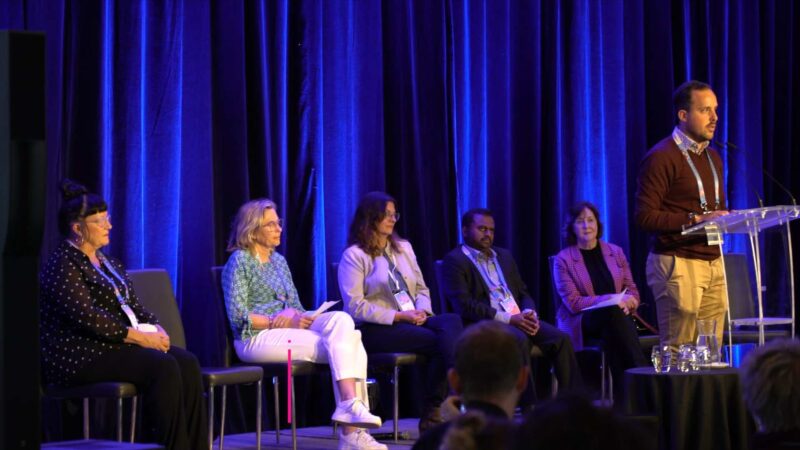New nurse-led protocols for stroke patients, based on ACU research, led by the Nursing Research Institute, have resulted in changes to policy, guidelines and clinical practice in Europe and Australia. The protocols were developed through the Quality in Acute Stroke Care (QASC) Trial (published in the Lancet, 2011) to manage fever, hyperglycaemia and swallowing (FeSS) post-stroke.
Professor Sandy Middleton FACN, FAAN is a Professor of Nursing and Director of the Nursing Research Institute at St Vincent’s Health Network Sydney, St Vincent’s Hospital Melbourne and Australian Catholic University. She focusses on stroke and the way research can improve care, particularly analysing the way nurses can initiate care to improve patient recovery.
Professor Middleton was the lead investigator on the landmark NHMRC-funded QASC cluster trial that demonstrated decreased death and dependency following implementation of nurse-initiated protocols to manage fever, hyperglycaemia and swallowing post-stroke, winning multiple national and international awards including ACU’s Vice-Chancellor’s Staff Excellence Award, Excellence in Research and Research Partnerships in 2019. These protocols have been translated into 64 hospitals in 17 European countries and in adopted in 36 NSW hospitals. She has published in high impact journals including The Lancet and The New England Journal of Medicine.
Australian Health Journal spoke with Professor Sandy Middleton on these significant achievements in nurse-led acute stroke care.
You Might also like
-
Making clinical trials participant friendly
Clinical trials are essential in developing new, improved, and more effective treatments and interventions. Without trials, researchers and professionals in the field cannot properly determine whether these new treatments and interventions are safe and effective.
The Clinials platform is geared towards patient centric trials and reducing site burden. The aim is to accelerate lifesaving medicines coming to market by connecting participants and researchers. The platform allows participants to come to researchers with their eligibility in hand among other capabilities.
-
Study on digital tool for pharmacists in aged care
In March 2022, the Australia government announced $350 million of funding over 4 years to employ on-site pharmacists in residential aged care, starting July 2023. In April 2023, the government made changes to the proposed on-site pharmacists, where the new program will now be delivered by and through community pharmacies. Regardless of how the model will be implemented, the goal remains the same – to improve quality use of medicines and medicines safety for aged care residents.
-
Generosity of spirit in teaching
The Ramaciotti Medal for Excellence is considered one of the most prestigious awards in biomedical research in Australia and is highly sought after by researchers in the field.
In 2022, Professor Matthew Kiernan was the recipient of the Ramaciotti Medal for Excellence and the associated $50,000 award.
Australian Health Journal spoke with Professor Kiernan to hear about his journey in medicine and science to try and uncover and understand diseases and his generosity of spirit to pass on what he has learnt.



